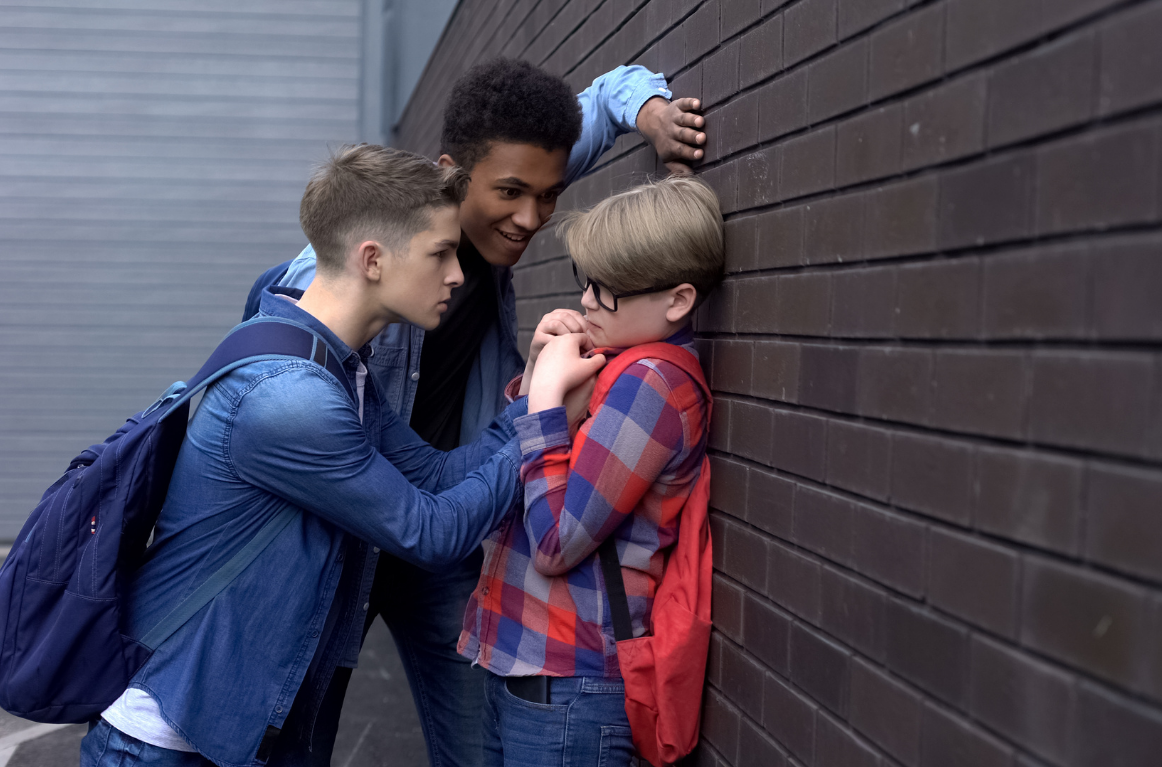Bullying is unfortunately a reality that many children encounter at school. In Europe, bullying affects 8 to 15% of young people in school, from primary to higher education [1].
Most acts of harassment involve three types of actors: harasser(s), victim(s) and witness(es). Bullying between students can be both physical and psychological. Indeed, harassment between students can take various forms: verbal (insults, mockery, rumors…), bodily (blows, pinches…), material (theft, hiding objects, extortion…), relational (rejection, exclusion…) and electronic (cyberbullying via SMS or social networks…) [2].
A violence like no other
Harassment is distinguished from other forms of violence by three fundamental characteristics:
- Deliberate intent to harm even if the actor claims it is just a game.
- The repetitive nature of the acts of harassment.
- The disproportion of forces.
Most of the time, the victim does not dare to speak for fear of aggravating the situation or worrying his parents. The victim is ashamed and feels a sense of guilt.
The Warning Signs
Despite the high percentage of bullying cases at school, it is often difficult for parents to realize that their child is being bullied. Indeed, it is not easy to tell the difference between simple arguments between children and real acts of bullying.
However, certain signs can alert parents: sleep disturbance, irritability, withdrawal, anxiety, anger, depression, drop in school results, dropping out of school… and stomach aches or eczema often associated with stress.
How to act?
The intervention of parents in this type of delicate situation is not an easy task. It is also advisable to call on the educational team (directors, teachers and educators). The role of the parents will rather consist in attracting the attention of this one. If the establishment is unable to resolve the problem, specialized services exist in Belgium such as the CPMS or School Mediation.
The “Écoute-École” toll-free number has been set up by the General Directorate of Compulsory Education with the aim of helping parents, the educational team, witnesses and victims of harassment: 0800 95 580. This number call is totally free from Belgium and accessible from Monday to Friday from 9a.m. to 4p.m.
Children can also dial 103 for the free “Écoute-Enfants” telephone line, accessible all week from 10 a.m. to midnight.
For more information, please visit the website below:
http://www.enseignement.be/index.php?page=26720&navi=0
Sources :
[1] AIR DE FAMILLES. École : Harcelés ? Available HERE[2] FÉDÉRATION WALLONIE-BRUXELLES. Le harcèlement à l’école. Available HERE
[3] UFAPEC. Harcèlement. Available HERE


